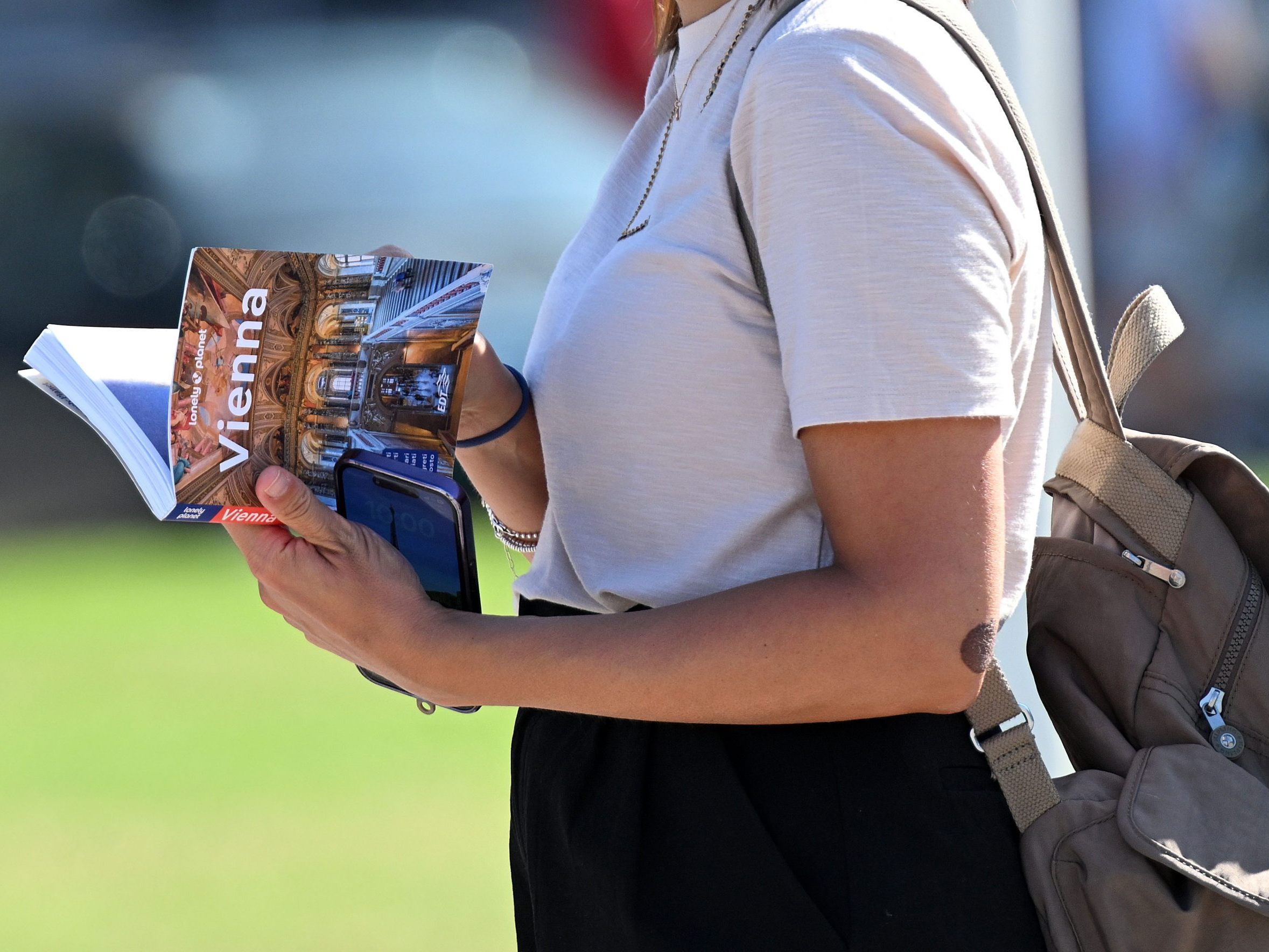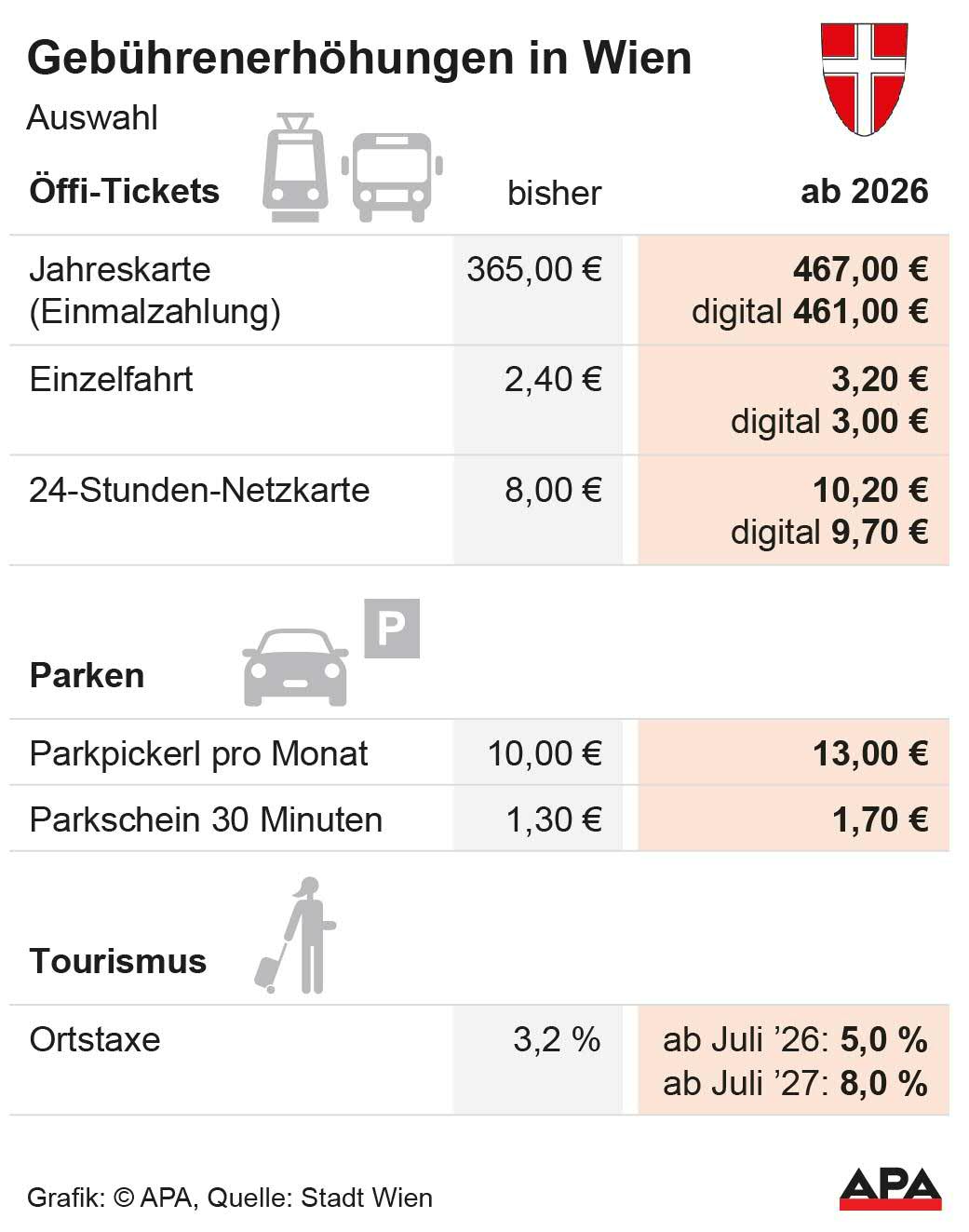Local Tax: Increase in Vienna in Reduced Form and Postponed to 2026

Specifically, this means that the local tax will be raised from the current 3.2 to 5 percent on July 1, 2026. The next step will follow a year later: from July 2027, it will climb to 8 percent. Originally, a rate of 8.5 percent was to apply from December 1 this year.
Increase in Local Tax in Vienna: Round Table at City Hall
The Chamber of Commerce and the Hotel Association had partly harshly criticized the measure. On Tuesday, a round table with industry representatives took place at City Hall. After weighing the opinions, relief measures are now being implemented, Novak emphasized after the meeting in a statement sent to the APA. The goal was to find a viable path that meets the interests of all parties involved.
"We have found a fair solution through dialogue, which particularly benefits already booked trips. This facilitates the implementation of the regulation for companies, especially with regard to congress tourism or the Eurovision Song Contest. Reliability and contractual fidelity are untouchable cornerstones that secure Vienna as an economic and tourism location," she stated.
At the same time, she emphasized the importance of the fee. "More than 80 percent of our overnight guests come from abroad. Tourists must also contribute, as the costs for infrastructure and services have increased." The revenue from the local tax would finance, for example, the surface design in front of each hotel, green spaces, or public transport.
Industry Chairman: Winter Season Saved
Dominic Schmid, the chairman of the tourism and leisure industry division in the Vienna Chamber of Commerce, expressed satisfaction: "The most important thing is that the upcoming winter season is saved and the Viennese hoteliers do not have to bear the costs of the local tax increase, which would have happened with an earlier increase." The phased plan keeps Vienna competitive as a destination.
ÖHV Vice President Alexander Ipp also spoke of a "good agreement" in a reaction. It shows that there is understanding for the other side. "We in the hotel industry are aware of the tense budgetary situation of the city of Vienna. Conversely, it would have been too much to burden the businesses to the extent that was considered. The timeline for implementation would also have been difficult. What we have now achieved together is presentable, and we are glad that it worked out."
Simplification Sought
NEOS councilor Markus Ornig also reported on a constructive and factual conversation. "It is a good solution because we have managed together that everyone contributes here."
It was also agreed to advance the simplification and debureaucratization of the billing of the local tax. Proposals for this are also being implemented, it was said.
Opposition Moderately Impressed
The Vienna opposition was only moderately impressed by the outcome of the conversation. The "half-hearted concession" is just a first drop in the ocean, said Vienna's FPÖ leader Dominik Nepp. Vienna is groaning under an unprecedented burden policy and red-pink "rip-off measures." "Therefore, I immediately demand the withdrawal of the price increases for public transport and the completely exaggerated parking fees."
Vienna's Green Party leader Judith Pühringer spoke in a reaction of a "mockery" of the Viennese. "When the Chamber of Commerce resists the local tax, the city government immediately caves in, but the destruction of the 365-euro annual ticket, the climate-social heart of our city, is ruthlessly pursued by Red-Pink." She advocated for an ecological reform of the local tax.
For the Vienna People's Party, the pressure from business, interest groups, and the opposition has shown effect. However, the new variant remains a noticeable burden for tourism and shows a lack of problem awareness in the city government, stated tourism spokesperson Karl Mahrer and finance spokesperson Manfred Juraczka.

(APA/Red.)
This article has been automatically translated, read the original article here.





